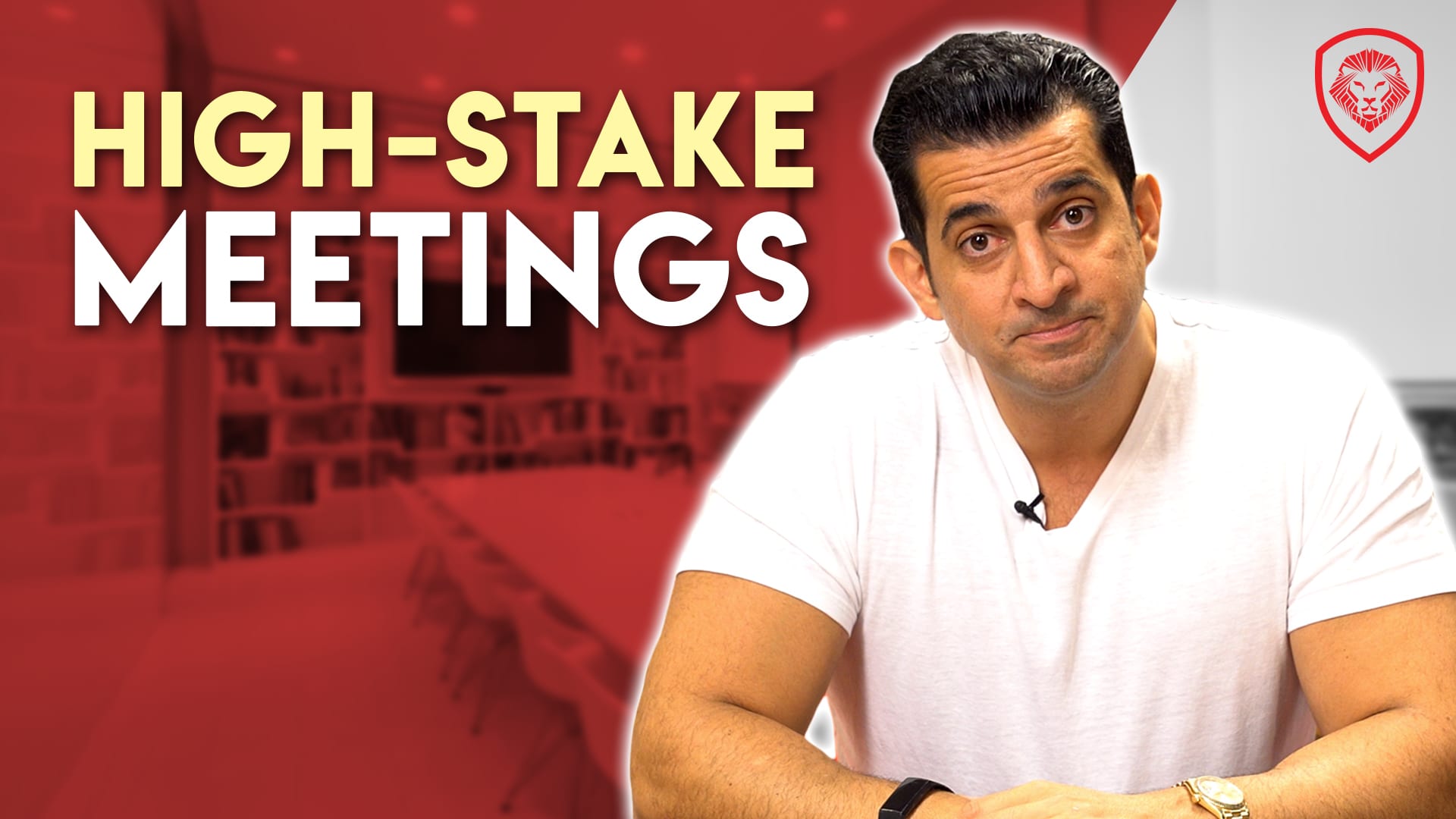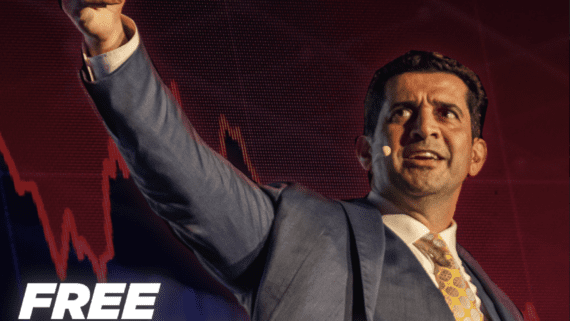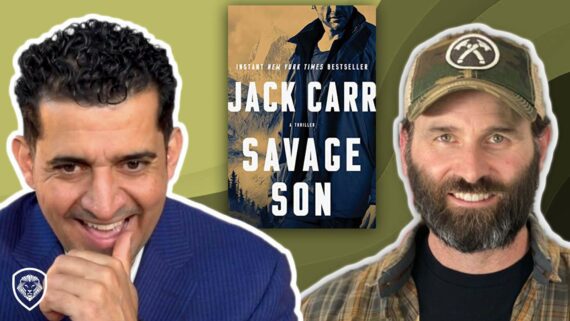There will come a few times in ones life where a meeting could potentially alter the course of our lives. These high-stake meetings will make or break us and in this video, Patrick Bet-David lays out 13 points to ensure we succeed in those very moments.
- Know Your Audience
- People are typically driven by fear, greed or “saving face.” Understanding which of those elements drives the person you’re meeting with will allow you to deliver your message to ensure it gets across to your audience as effectively as possible.
- Don’t Act, Be.
- Many people feel they need to be like someone else to achieve a desired outcome, particularly in a high-stake meeting. This couldn’t be further from the truth. Most people can spot a fake and once that happens credibility is lost. Strive to be the best version of you and allow that genuine, confident demeanor to come across your audience.
- Do Your Research
- Ensuring you do your research on whoever you’re meeting with will let him/her know that you are diligent and attentive to detail. These qualities could be the deciding factor on the meeting going your way or not, as it will let your audience know the level of effort, diligence and maturity you bring to the table.
- Have An Opinion
- High performers often ask “weird” questions to get a glimpse of your character. Giving a general answer will most likely lose the interest of the person asking the question, therefore, it’s important to give a thought-out answer. Similarly, you ought to always be respectful of dissenting opinions because you might not know where the other person stands on the issue.
- Respect Sensitive Issues
- General awareness is a key skill to have in a high-stake meeting. Understanding what your audience values and desires as well as what they don’t will allow you to avoid unintentionally offending them or simply losing their interest. Body language will let you know where you stand. When you begin to see them crossing their arms, looking at their watch or the TV you will know that you lost them, and once that happens is nearly impossible to get them back.
- Have 3-5 Good Questions
- A great journalist will draft about 100 questions to prepare to conduct an interview out of which he/she will narrow them down to the best 50, 25, 10, and all the way to the best one. We should approach high-stakes meetings the same way. This will allow us to get the most out of the person we’re meeting with as well as make a good impression.
- Avoid Flattery
- Flattery comes across as disingenuous, however, a compliment can go a long way. Here’s the difference. A complement has weight to it, as it usually comes with an explanation, but flattery is empty and often given with ulterior motives. When you compliment someone, especially in a high-stake meeting, make sure to elaborate on the “why.”
- Anticipate Other Parties Concerns
- After having done your research and identified sensitive issues, write down a list of your audiences’ concerns and find ways to bring value and solutions to those concerns. Positioning yourself as a real solution to someone’s concerns in a high-stakes meeting will very often lead to your desired outcome.
- Develop An Outline
- Having an outline to remind you of all the points you wish to touch on as well as the order you wish to cover them in is imperative, especially for high-stakes meetings where nerves and anxiety can be running high. Even if your audience can see this outline, it will only speak positively about how well prepared you are.
- Role-Play
- Practicing how you plan to deliver your message in a high-stake meeting can often reveal areas of improvement when it comes to delivery. Practicing it multiple times will build confidence as your message becomes more and more fluid, allowing you to be more present during the meeting as opposed to being so focused on what you need to say next.
- Ask For Feedback
- It’s important to seek feedback from trusted people with varying perspectives. This will allow you to have a broader understanding of any given issue in order to craft the best presentation for your audience.
- Right Frame Of Mind
- Before going into a high-stake meeting eliminate any negative news, people, situations, etc. Instead, focus on the positives. This will help you be in the best mood and achieve the best frame of mind possible.
- Build A Reputation Of Over-Delivering
- Over-delivering is something few people do but many people promise. Make sure to build a reputation as someone who always goes above and beyond, this builds credibility in you and your brand. Exceeding expectations will set you apart from your peers and bring exponential growth as a result.
- Identify Your Next 5 Moves
- Ending the meeting recapitulating your next five courses of action will give your audience clarity and peace of mind that you have everything under control, not to mention that your reputation for over-delivering will lead them to trust you even more with the tasks at hand.
Subscribe for weekly videos http://bit.ly/2aPEwD4
Order Patricks new book to learn more about Strategy in business. Order “Your Next Five Moves” now! https://bit.ly/2Y48POF
Share your thoughts with Patrick Bet-David on Twitter https://www.twitter.com/patrickbetdavid
To reach the Valuetainment team you can email: info@valuetainment.com
Follow Patrick on social media:
Instagram: https://www.instagram.com/patrickbetdavid/
Twitter https://www.twitter.com/patrickbetdavid
Subscribe for Weekly episodes on Valuetainment.





